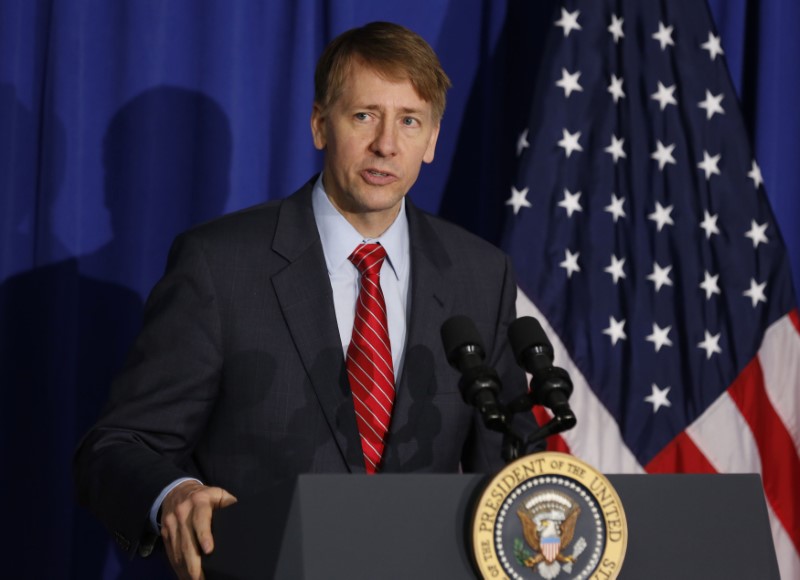By Lisa Lambert and Pete Schroeder
WASHINGTON (Reuters) - A top U.S. regulator for Wall Street took the unusual step on Monday of directly asking President Donald Trump to veto a resolution that allows financial companies to block customers from banding together to sue, a request likely to be ignored.
The Consumer Financial Protection Bureau, an independent regulator headed by Democrat Richard Cordray, finalized a rule in July barring banks, credit-card issuers and other financial companies from requiring customers to give up their rights to join group lawsuits, known as class actions, and only take potential disputes to closed-door arbitration.
Congress recently voted to kill the rule in a special resolution that Trump, a Republican, is expected to sign into law soon.
"You alone now have the power to safeguard people's ability to take action together and go to court when they are wronged," Cordray, expected to resign soon to run for Ohio governor, wrote to Trump.
White House officials were not immediately available to comment on the letter.
In class actions, individuals with the same complaint band together to lower lawsuit costs.
Trump has not vetoed any legislation since taking office in January. But he has frequently criticized both Cordray, appointed by former Democratic President Barack Obama, and the CFPB, established after the financial crisis to protect individuals against predatory lending.
Cordray wrote he had never met or spoken to Trump, but that "many have told me.... your mind is made up" about the resolution.
Shortly after the Senate passed the resolution last Tuesday, the White House released a statement saying the CFPB rule would give consumers fewer options to resolve disputes quickly and efficiently and would primarily enrich trial lawyers. The administration has also said the CFPB used faulty research to write the rule.
The CFPB says its five-year study into mandatory arbitration was thorough and its rule based on sound data. Rule supporters say arbitration is stacked in favor of companies, which hire the mediators, and that the right to trial is enshrined in the Constitution. On Friday, military veterans also asked for a veto.
Regulators almost never make personal pleas for vetoes, let alone release their requests publicly.
Cordray has a strained relationship with Republicans, who say he has too much power because he both writes and enforces rules and can only be fired "for cause," a strict standard nearly impossible to meet. Trump has gone as far as arguing in court filings that the CFPB is unconstitutional and he should have the power to fire its director.
